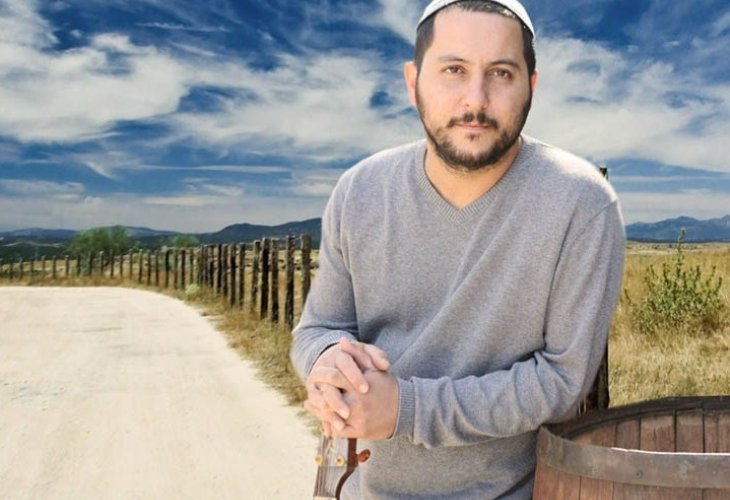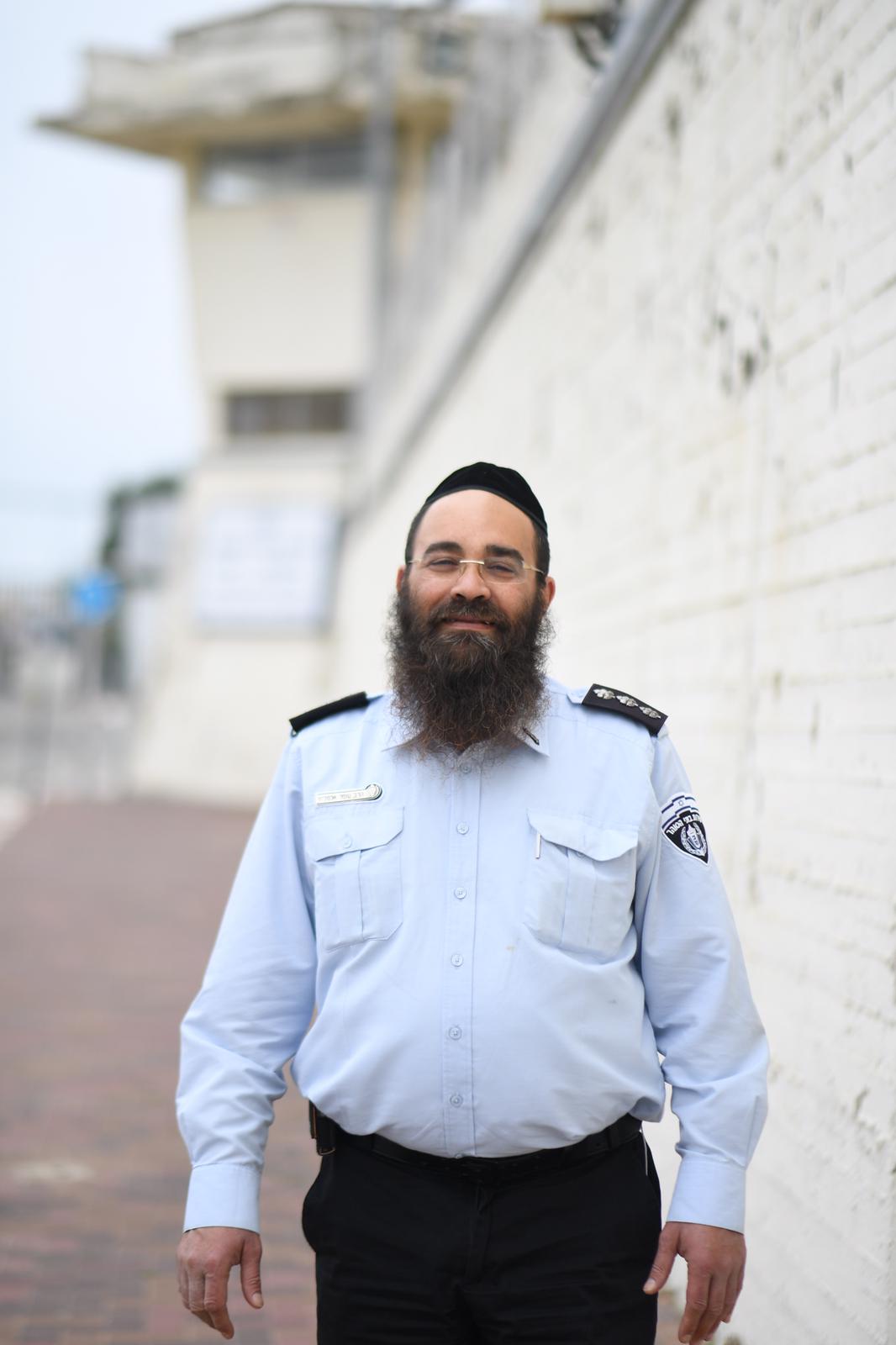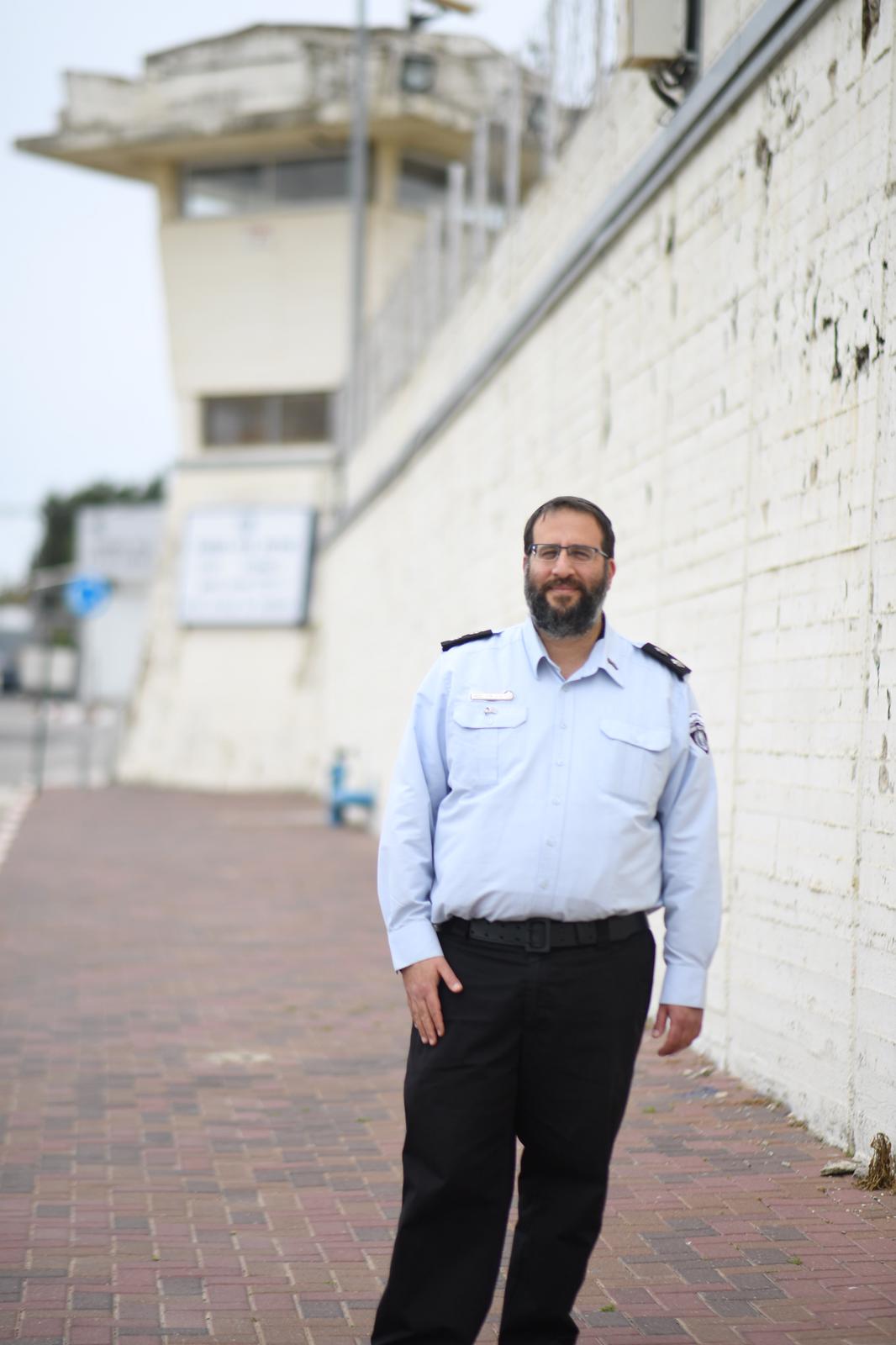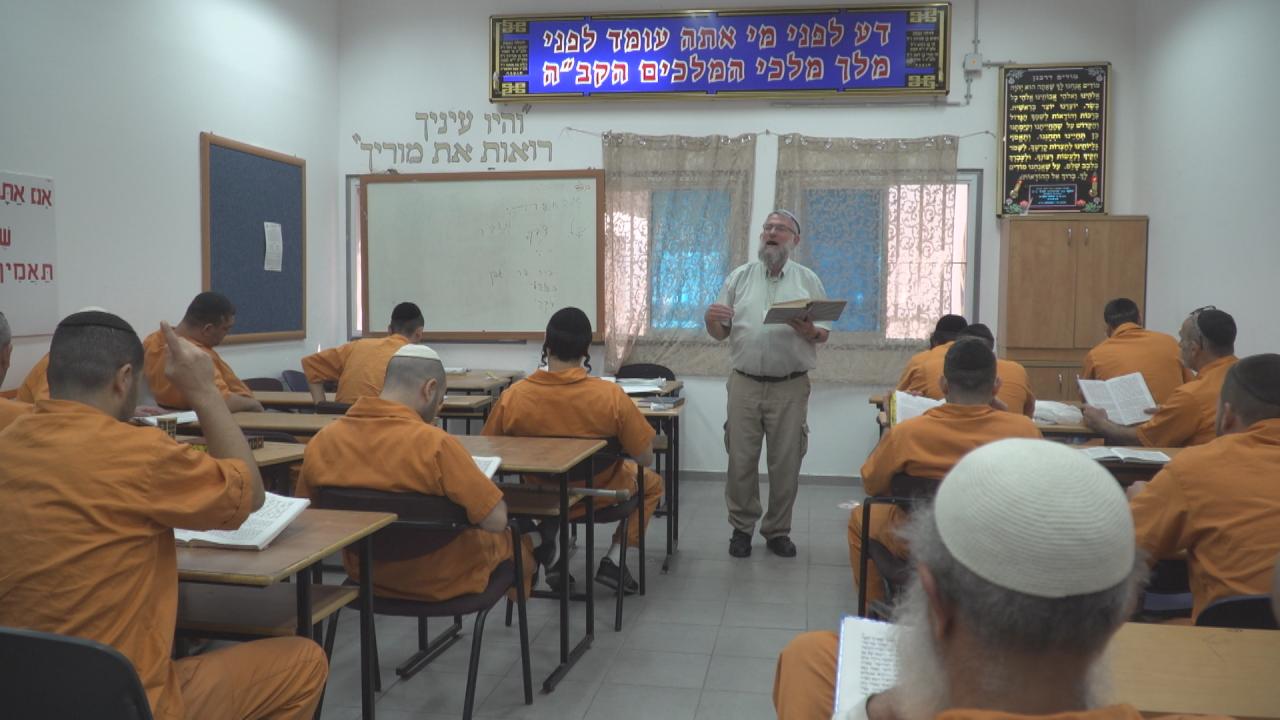How Do You Celebrate Passover Behind Bars? An Inspiring Interview on Freedom Beyond the Bars
1,200 prisoners study Judaism in institutions operating within Israel's prisons. "Hashem believes in everyone's chance to change and expects from each one. We, the prison service rabbis, are the emissaries to offer a lifeline and connection to the Creator."
 (Photo: IPS)
(Photo: IPS)While all of us sat around the Seder table, our children asking questions and singing 'Why is this night different,' prisoners in Israel's prisons were also gathered, singing songs, eating matzah with strict Kashrut supervision, reading from the Haggadah, and learning the story of their own exodus from Egypt. Among them are prisoners studying about their own journey from bondage to freedom, ironically finding escape from slavery to freedom behind bars, turning prison walls into walls of hope. This seemingly paradoxical lack of freedom provides the opportunity to choose goodness, in the path of Torah—the true freedom.
"Twenty years ago, a prisoner from the former Soviet Union arrived," recalls Major Rabbi Ofer Elmaliah, the Chief Rabbi of the Prison Service. "The prisoner didn’t even know Hebrew but got involved in the programs at religious institutions, which started his journey towards spiritual rehabilitation. He built a family and today maintains a Torah-observant lifestyle with his household."
 Major Rabbi Ofer Elmaliah
Major Rabbi Ofer ElmaliahAhead of the holiday symbolizing redemption and freedom more than anything else, the prisoners participated in the "My Haggadah" project—each prisoner received a printed Haggadah with space to write where they see themselves within it. Deputy Superintendent Rabbi Eyal Salmen, head of Torah Correction at the Prison Service, notes: "We discussed the four sons—the wicked, the simple, the wise, and the one who does not know to ask—we learned that every Jew, no matter where he is, is unique and special to Hashem. This understanding gives hope and the desire to change."
Prisoners Studying Torah: Exams, Halacha, Chumash, and Prophets
Within the Prison Services, formal frameworks exist where 1,200 prisoners engage in Torah study in about 80 classes. "The learning includes exams, Jewish studies, Halacha according to Shulchan Aruch, and studies on Jewish holidays, Chumash, and Prophets," says Rabbi Eyal. "Apart from the theoretical aspect, they also learn practical life insights from the weekly portions. The Torah is a 'Torah of life,' and each one finds how it relates to him."
Rabbi Eyal has served in various roles, including as a regional and prison rabbi. For the last two years, he has worked at the chief rabbinate headquarters. "The Torah is a Torah of life," he says. "We don't teach technique or procedure but as Rambam writes: 'Most of the Torah’s laws are, in essence, good advice, to correct actions and straighten moral character.'"
How do you know which prisoners show genuine interest in Judaism and who comes to shorten their sentence?
"We haven’t invented the magnetometer to reveal one's heart's intention," Rabbi Eyal jokes. "The mere fact they can choose other studies and paths, yet choose Judaism, says something stirs them internally. The goal is to provide through Torah corrective tools for a different perspective on life."
Once a Prisoner, Now a Yeshiva Student
Rabbi Eyal speaks sensitively about his work with prisoners. "You see the prisoner at all stages—through the difficulties of imprisonment, the disconnect, and loss of choice—they are in a closed cell, subject to lockdowns, but when a person loses hope, he asks himself: 'How did I get here?' and finds that his help comes from Hashem."
 Rabbi Eyal Salmen
Rabbi Eyal Salmen"In one case I accompanied, there was a prisoner who couldn’t be among people. Through personal conversations, he went to the institution and was integrated into morning studies. Knowing that *Hashem* sees him gave him strength. He continued with a rehabilitation program and became a yeshiva student in a well-known yeshiva post-release."
In another instance, a prisoner returned to faith in prison, experiencing many ups and downs. Rabbi Eyal recalls: "As his counselor, he later joined a religious rehabilitation program. After two years, he made a rare request for me to marry him, as I was instrumental in his return to faith. I received permission from the prison service, and it was a very moving wedding."
To what extent do the Torah studies and closeness to Hashem reveal the point of freedom even within prison?
"It may seem contradictory, as their freedom is deprived within the walls, but we term them: walls of hope. The IPS works not only on incarceration aspects but also on providing inmates with corrective tools. The fundamental and successful tools are the religious tools and values the Torah provides. They enable the prisoner to understand life's responsibility and the significance of their role."
Is the behavioral change significantly noticeable?
"Certainly. Their worldview changes, and some have started new lives. They still carry their past and hardships, but they now have the freedom to choose between good and evil. They can now choose."
The Torah teaches how to be content with what one has, akin to a wealthy person happy with their share. In simple words—being happy with minimal wage and being normal. One prisoner in a rehabilitation program shares: 'Today I earn 1,800 shekels in a kolel, and if I come on Friday, I get an additional 300 shekels, and if I excel in exams, a bit more, and with Hashem's help today, I live in greater happiness than when my pockets were full.'"
What do you learn from the prisoners' process?
"Each chooses truly how much they want to opt for the good. This is never taken from them; might be dimmed, but never gone. Prisoners beginning the process truly shift their outlook, managing to lift their heads and see those around available to help them. With the creator by one's side, nothing can stand in the way of learning anew from Rabbi Akiva to start over from every fall and challenge."
There is much credit in your words.
"Hashem believes in everyone and in everyone’s ability to change. Hashem expects everyone. We, the rabbinate, are emissaries offering a lifeline and connection to the Creator because prisoners will be released one day, the question is how."
Freedom of the Soul: Passover Within Prison Walls
Rabbi Ofer Moshe Elmaliah, Deputy Chief Rabbi of the Prisons Service: "The service's rabbinate overall operates a system of rabbis in all prisons. Prisoners experience a crisis, yet crisis also means 'bodes' as from the crisis the spirit of the prisoner rises. The presence of Torah institutions teaching Judaism provides an opening for a comprehensive and orderly process that deepens prisoner treatment and commitment to the process."
"Religious rehabilitation has proven successful in the past and continues to prove its worth in supporting and rehabilitating prisoners for success in combining Torah lessons, employment, counseling, and more. I recall a case 20 years ago of a prisoner from the former Soviet Union who couldn’t even read in Hebrew. He integrated into religious studies and paved his way toward spiritual rehabilitation."
 Prisoners studying Judaism in IPS institutions (Photo: IPS)
Prisoners studying Judaism in IPS institutions (Photo: IPS)"Passover symbolizes freedom and family closeness for the Jewish people. Inside prisons, we strive to provide inmates the holiday feeling through Seder services, Passover plates, and a festive atmosphere among prisoners. Indeed, sitting behind bars during these days is harder for the prisoner, but their involvement in celebrating and preparing for the holiday constitutes 'freedom of the soul.'"

